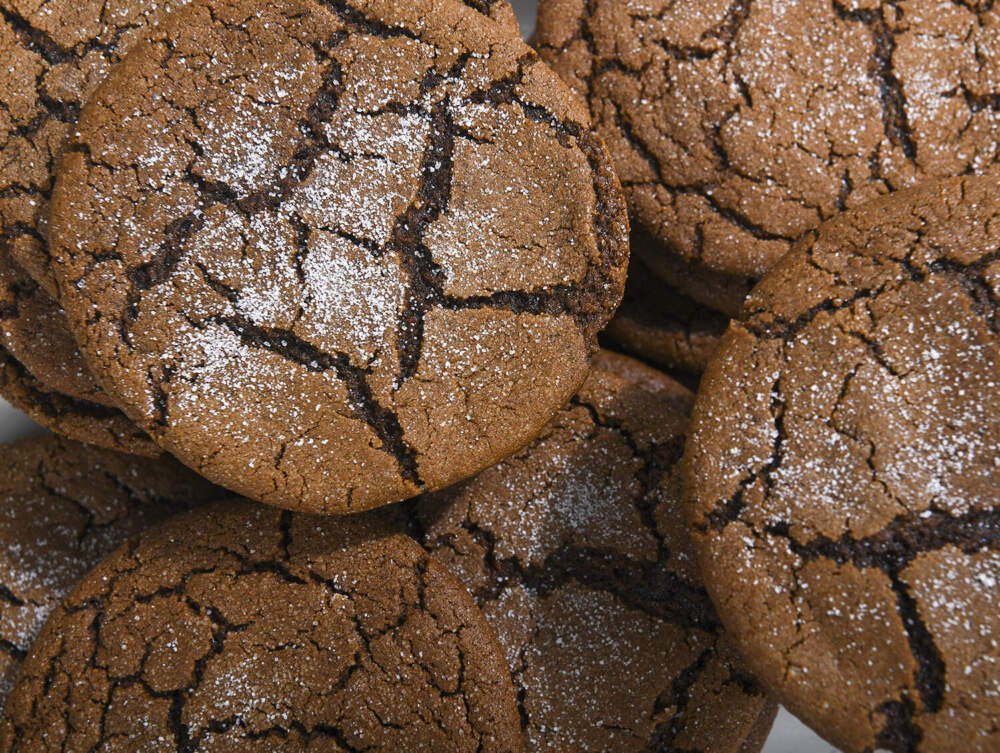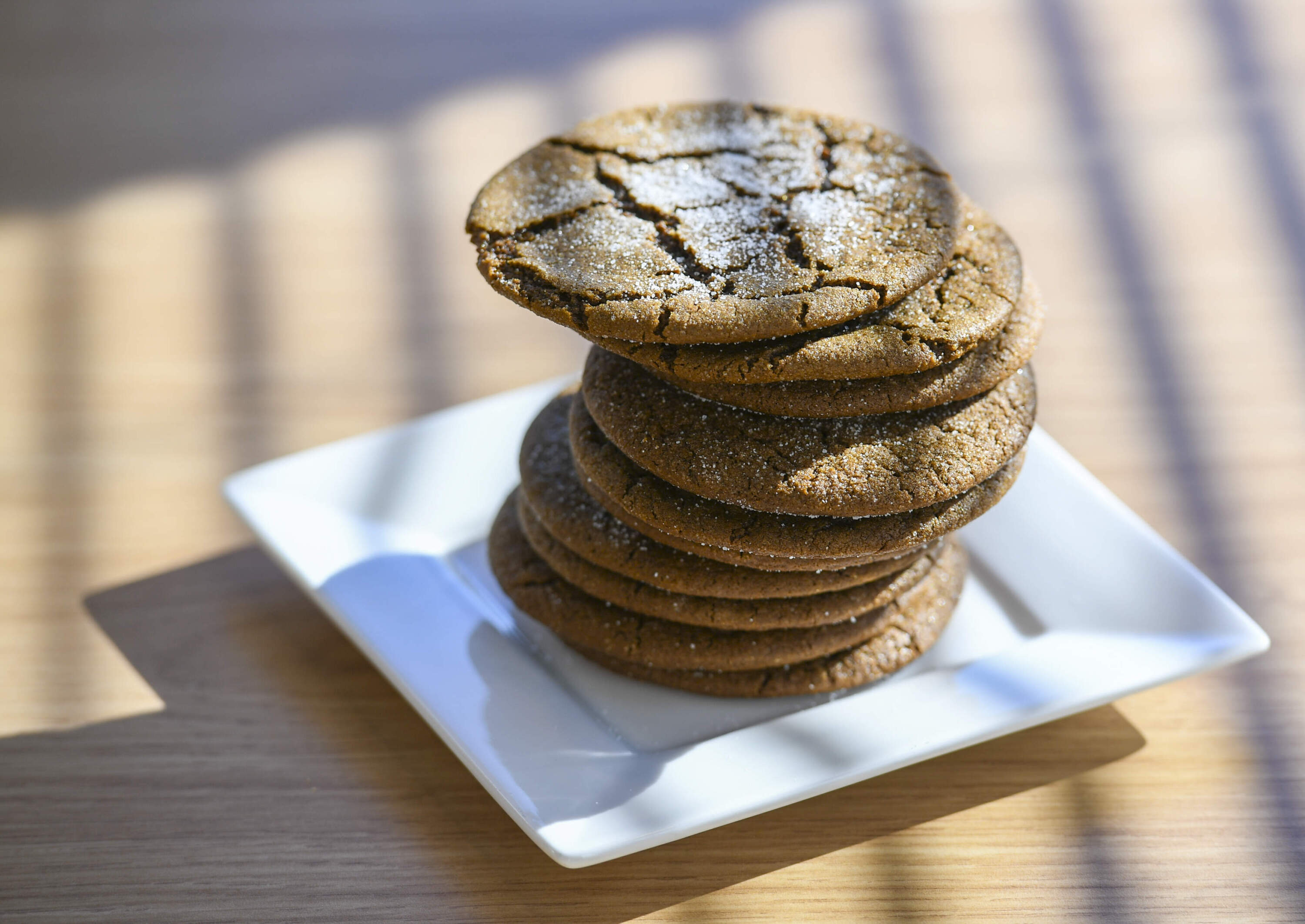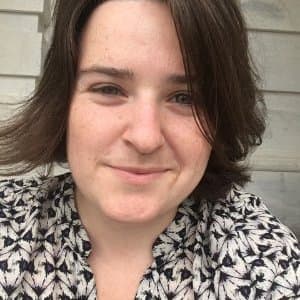Advertisement
Field Guide to Boston
Hidden North Shore history as told through Marblehead's signature rum and molasses cookie
Resume
Rum, molasses, nutmeg and clove might sound like seasonal flavors this time of year, and they are, but they're also the flavors of the Joe Frogger cookie, a regional delicacy that connects Gingerbread Hill in Marblehead all the way to the National Museum of African American History and Culture in Washington, D.C.
We spoke with Lauren McCormack, executive director of the Marblehead Museum, and Kabria Baumgartner, dean's associate professor of history and Africana studies at Northeastern University, to shed new light on the story of these cookies in 2022. We revisit the conversation as part of WBUR's Field Guide to Boston.
Interview Highlights
On Joseph and Lucretia Brown, the creators of the Joe Frogger:
McCormack: "Well, Joseph was born in North Kingstown, Rhode Island, actually. He was born enslaved to a man named Beriah Brown. And Beriah basically forced him to serve out his son's time in the Revolutionary War, but for doing so allowed him his freedom. Born in 1749 and after his freedom, which he earns from serving out his master's son's time in the war, [Joseph] makes his way up to Marblehead, Massachusetts on the North Shore of Massachusetts. We don't exactly know how, but when he's there, he meets Lucretia, who was born in Marblehead or Salem. We're not exactly sure where, but in 1773, she's born and they marry. And as you mentioned, they purchase a building on what's called Gingerbread Hill in Marblehead and they open up a tavern. They enter into Marblehead myth at this time...because of the amazing cakes and gingerbread cookies — Joe Froggers — that they serve, and they become very much a part of town's history and town lore.
Baumgartner: "Lucretia and Joseph Brown ran this tavern in Marblehead and it was apparently very popular among sailors and other clientele. And I was particularly interested in the Black Election Day celebrations that happened at the tavern in May."
"It was called Election Day, but really it was election week. And it was a festive occasion. There was lots of dancing and music. There's an image of Joseph Brown. playing the fiddle as people around him dance. And so Black Election Day is an important historical event. It was celebrated annually from the 18th century to the early 19th century. And during Election Day, African Americans often voted for their own official representative. So that history is important, not just because they're African Americans who are running their own tavern — that's important too, the entrepreneurship angle — but I also think it's important that they're part of the Black Election Day celebration. And that's part of North Shore's history and Boston's history and the history of Massachusetts."
On Lucretia Brown and her skills in entrepreneurship:
McCormack: "Sometimes she gets lost behind Joseph Brown for various reasons, but I love to talk about her because like you say she is a female entrepreneur in a time when that in and of itself amongst white and Black individuals is relatively rare. She's known for picking roses all spring and summer long so that during the winter she can distill them into rose water and that was a pretty amazing. It's very popular for perfume and also something you would use in food back in the mid 19th century. So she's doing that. She is known far and wide for her wedding cakes and various types of cakes. It's told decades later, people remember her. And if you wanted a wedding cake in the Marblehead, Salem area, you went to Lucretia Brown."
"So she really did develop this amazing business and was such a part of the community that decades later, people who remembered her were writing about her in the newspapers and in the reminiscences. And just the fact that they gave so much to the community that years later people remembered that, and centuries later we still talk about them."
On the Joe Frogger cookie:
Baumgartner: "The cookies preserved fairly well. So sailors were able to take them with them and keep them for a couple of months and they would have them at sea."
McCormack: "They're fabulous, right? A lot of people have said they're sort of gingerbread in a cookie form. So you have that little crunch that you don't always get with gingerbread. And like you said, they'll last. And that's what's great. And what's also interesting about them is that they're made with rum and molasses. And those things are products that were produced by enslaved people. And so here you have two people touched by enslavement themselves in various ways who are known for this cookie."
Baumgartner: "Yeah, I think it's delicious. It's a fairly large cookie, chewy, but still soft, and flavored with these spices. It was thought that Lucretia invented the recipe and she named the cookie after her husband, after Joe. So they have Joe Frogger's cookies. But it is part of New England history. It's part of African American food ways that we have this recipe and that we can now make a cookie like this."
The Joe Frogger cookie recipe:

This recipe was provided through the Town of Marblehead website.
Ingredients:
- 3½ cups flour
- 1½ teaspoons salt
- 1½ teaspoons ground ginger
- 1 teaspoon baking soda
- ½ teaspoon ground cloves
- ½ teaspoon grated nutmeg
- ¼ teaspoon allspice
- 1 cup molasses
- ½ cup vegetable shortening
- 1 cup light brown sugar
- 2 tablespoons dark rum
- 1/3 cup hot water
Baking Instructions:
- Mix flour, salt, ginger, baking soda, cloves, nutmeg and allspice in a medium bowl.
- In a large bowl, beat together the molasses, shortening and brown sugar.
- Combine the hot water and rum.
- Add the dry ingredients and the water/rum mixture alternately to the sugar/molasses mixture. (If the dough is dry, add a tablespoon or two of water.)
- Roll out the dough between two sheets of waxed paper until ¼ inch thick.
- Refrigerate at least two hours.
- Preheat oven to 375 degrees F.
- Grease two baking sheets.
- Cut the dough into 3-inch cookies with a cookie cutter. (The original Joe Froggers were much larger. For the traditional size, use a coffee can.)
- Place on greased cookie sheets and bake for 10 – 12 minutes. (Longer for the traditional size.)
- The cookies are baked when they are dark around the edges and firm in the centers. Set the cookie sheets on a rack to cool for five minutes.
- Remove to a rack to cool completely.

